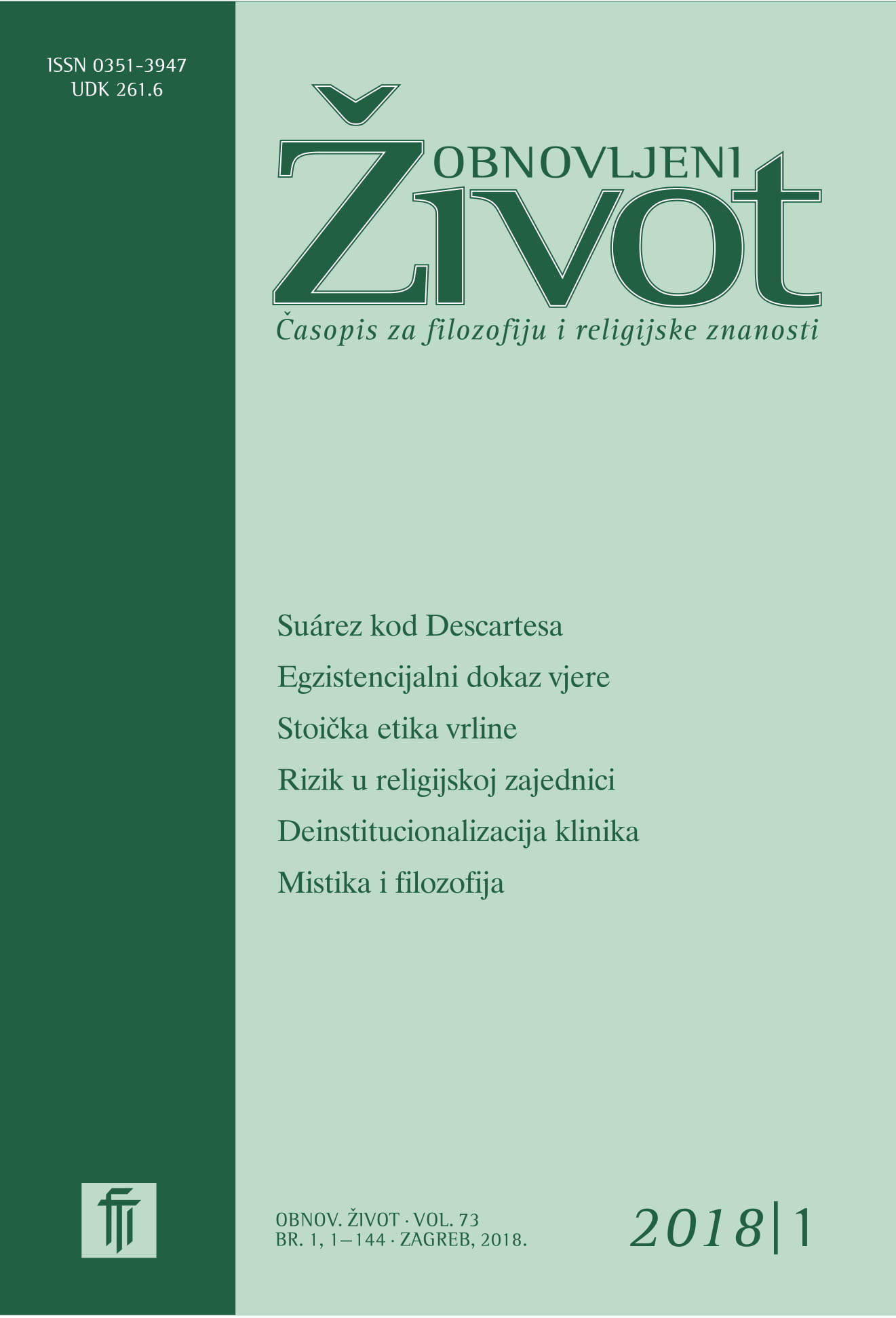Stoic Virtue Ethics and Rousseau’s Concept of Civil Religion
Keywords:
Roman Stoicism, logos, virtue, Seneca, Epictetus, Marcus Aurelius, civil religion, Jean–Jacques RousseauAbstract
Stoicism, one among several Greco–Hellenistic schools, not only played a key role in the history of philosophical thought, but also in the shaping of our very understanding of ethics. Stoic teachings during the period of Roman Stoicism (early Stoicism) placed a special focus on ethical issues. Thus, Stoic ethics as a distinct philosophical discipline in fact came into being in the period of the early Stoa during the latter centuries before Christ and in the first two centuries after Christ. Fundamental to Stoic ethics is the subdueing of passions and emotions by means of reason. A Stoic’s ethical ideal is to become wise and to be wise, while the ultimate goal and purpose of the followers of Stoicism is to endure in the spirit of its integral philosophy. The model for achieving virtue, that is, a life in harmony with other persons, is seen by Stoics as existing in nature (the cosmos). This article aims to demonstrate the role and meaning of ethics during the period of early Roman Stoicism. This reflection on Stoic ethical teaching is focused upon some key components of Stoic ethics, such as
logos and virtue. Furthermore, for a clearer understanding of Stoic ethics, the article introduces the most significant thinkers of early Roman Stoicism: Seneca, Epictetus and Marcus Aurelius. Finally, a critical reconstruction will serve to assess Rousseau’s grasp of civil religion as being a sort of counterpart to Stoic civil religion and ethics.
Downloads
Published
Issue
Section
License
Jednom prihvaćeni članak obvezuje autora da ga ne smije objaviti drugdje bez dozvole uredništva, a i tada samo uz bilješku da je objavljen prvi put u Obnovljenom životu. Uredništvo će obavijestiti autora o prihvaćanju ili neprihvaćanju članka za objavljivanje.
Članci objavljeni u časopisu se, uz prikladno navođenje izvora, smiju besplatno koristiti u obrazovne i druge nekomercijalne svrhe.


